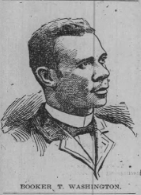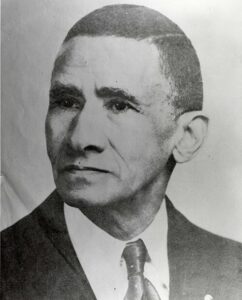Once upon a time in Black Entrepreneur History lived an African American man named Robert Gordon who became a domineering business man in the coal and real estate business in the 1800s, becoming the wealthiest African American man in Cincinnati, Ohio
Robert Gordon was born into slavery in the 1813 in Richmond, Virginia and he ended up being a coal carter, a person who hauls coal, under the slaver who was a yachtsman and owner of a coal yard. Gordon’s slaver grew very impressed with his work, and he began to trust Gordon all around with his coal yard. Therefore, he made the decision to grant Gordon complete control of the retail sales and handling of the coal, which increased his slaver’s wealth dramatically in a short amount of time[1].
Over time, Robert Gordon was able to save up enough money to purchase his own freedom from his slaver in 1846. He purchased his freedom for thousands which he’d saved through the selling of coal to manufacturers and blacksmiths in the area[1].

Robert Gordon Moves as a Freeman to Cincinnati, Ohio & Becomes Coal Yard Owner
With his freedom, Robert Gordon moved to Cincinnati, Ohio from Virginia, leaving his old life behind, but not his superb business skills. Upon arrival to Ohio in 1847, Gordon invested in his own coal yard which he purchased for fifteen thousand dollars. Not only that, he employed several people to get his coal business running smoothly, such as book keepers. He even built his own docks and made large purchases of coal for his yard, and even bought his own wagons. Soon his coal “carts were going all over Cincinnati[2]“.
With success comes competition and envy, however. Caucasians in the same business as Gordon grew to dislike him fairly quickly, thus, started to lower their prices in order to discourage patrons from buying from him and run him out of business. When Gordon noticed their stunts, he hired biracial people, who could pass for white people, to go and purchase his competitions’ coal at the least expensive price, bring the coal to him and then he would resell it much later at the true market value and higher because there was no coal left in Cincinnati’s market. He’d outsmarted his enemy competition, leaving the Caucasian dealers with less coal to sell while Gordon had the most and continued to make the most money. No one dared to compete with Gordon again.
Robert Gordon became one of the wealthiest men in Ohio. He bought a “fine residence in Walnut Hills on Elm Street[3] and at the time of his death owned thirty good houses.[2]” Also documented in The Cincinnati Enquirer of 1885[2], there was an article written about the wealth of Robert Gordon as an African American man, stating that he was:
“very black. One day just before the rise in Government Bonds, he went into a Cincinnati bank and asked the cashier, who did not know him, if he had any bonds to sell. The cashier replied, “Yes”. Gordon then asked if he had many, as he wanted to make a big purchase. The cashier replied, “Plenty.”
“Well,” Mr. Gordon responded, “I’ll take $150,000 worth, and with that, to the man’s surprise, he began to write out a check. The cashier looked at the negro as if he thought he was crazy, and slipping into the President’s room [of the bank] and told him the story. The President of the bank looked out and said, “Oh, that’s Robert Gordon! Give him the bonds. His check is good for three times that amount.”
There was another event that showcased just how powerfully wealthy Robert Gordon was, and that event was when is daughter Virginia A. Gordon married Geo H. Jackson at their wedding ceremony in 1879. The ceremony was held at the Allen Temple in Cincinnati, Ohio on April 24th. The Allen Temple was an old Jewish Synagogue, and for weeks, word traveled with grand furor, and people were explosively excited about the daughter of the “wealthiest colored man in Cincinnati”[3], who ended his coal business in 1865 and was worth about $150K (about 6 million dollars in 2022).
Robert Gordon’s Death
Robert Gordon passed away on January 11, 1884. He was married to a woman named Eliza Gordon, and Virginia Ann Jackson was their only child. He left a great legacy for all to learn how to conduct great business, beat the competition and to invest while being a great family man.
Sources
- Carter G. Woodson, “The Negroes of Cincinnati Prior to the Civil War,” in “The Jounal of Negro History,” Vol. 1., No. 1, January 1916
- The Cincinnati Enquirer 15 Feb 1885, Sun · Page 10
- The Cincinnati Enquirer Cincinnati, Ohio 25 Apr 1879, Fri • Page 8





More Related Stories
Isaac Scott Hathaway – Founder of Isaac Hathaway Art Company & Designer of First African American Coin
James Wormley – Founder of the Most Expensive Hotel in Washington D.C. in 1800s – the Wormley Hotel
William E. Matthews – Wealthy Financial Broker & Civil Rights Leader of 1800s